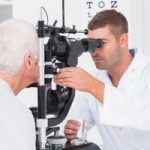This past week it was National Drug and Alcohol Facts Week which touches upon topics related to alcohol consumption, antipsychotic drugs and Alzheimer’s disease. National Drug and Alcohol Facts Week aims to debunk myths regarding substance abuse and addiction and highlight important information in regards to alcohol and drugs.
Below are Bel Marra Health’s top articles regarding antipsychotic drugs, alcohol consumption and Alzheimer’s disease to better educate you about what is going on in regards to these areas of health.
Experts suggest drugs could help ‘lazy’ people exercise
Advertisement
 Endurance experts are suggesting that drugs could be beneficial to help “lazy” people exercise. The drugs in question are psychoactive drugs, and they may be able to get those who are normally sedentary to start moving.
Endurance experts are suggesting that drugs could be beneficial to help “lazy” people exercise. The drugs in question are psychoactive drugs, and they may be able to get those who are normally sedentary to start moving.
One of the foremost barriers to exercise is physical exertion, along with a lack of time. Dr. Samuele Marcora suggests that using stimulants like caffeine or psychoactive drugs could reduce the perceived exertion during exercise and help people stick with their fitness plans.
Dr. Marcora argues that perceived exertion during physical activity is the biggest limitation and they reason why people would rather use up their leisure time sitting in a chair instead of moving. Although his suggestions may seem radical, he suggests we need to find ways to motivate those with the lowest motivation levels, to encourage them to start something as easy as walking.
Furthermore, reducing the perception of exertion would also be beneficial for those who are overweight or obese who simply think it is too difficult to exercise. Continue reading…
Benzodiazepines and related drugs commonly used for Alzheimer’s diagnosis
 Prior to an Alzheimer’s disease diagnosis, benzodiazepines and related drugs are commonly used and become more even more common after diagnosis. The research comes from the University of Eastern Finland. Benzodiazepines are a line of drugs used for sleep or anxiolytic purposes. Use of benzodiazepines becomes more common in those with a diagnosis of Alzheimer’s disease than those without a diagnosis.
Prior to an Alzheimer’s disease diagnosis, benzodiazepines and related drugs are commonly used and become more even more common after diagnosis. The research comes from the University of Eastern Finland. Benzodiazepines are a line of drugs used for sleep or anxiolytic purposes. Use of benzodiazepines becomes more common in those with a diagnosis of Alzheimer’s disease than those without a diagnosis.
Researchers used data from the Finnish Medication Use and Alzheimer’s Disease Study (Medalz). The database includes all Finnish persons diagnosed with Alzheimer’s disease between 2005 and 2011. The researchers examined the use of benzodiazepines and related drugs in 51,981 people diagnosed with Alzheimer’s disease. Over the course of five years, drug use was recorded and follow-up started two-years prior to diagnosis. Findings were compared to individuals not diagnosed with Alzheimer’s disease and matched by gender and age. Continue reading…
Use of antipsychotic drugs increases with age
 More seniors are being prescribed antipsychotic drugs, even though no clinical psychiatric diagnoses have been made. Antipsychotic drugs can be beneficial in treating certain mental disorders, but the researchers found that in 2010 nearly one-third of seniors who were prescribed antipsychotic drugs had no documented mental disorder. Furthermore, half of those who actually did have a mental disorder had dementia, and the FDA warns against the use of antipsychotic drugs in dementia patients due to an increased risk of death.
More seniors are being prescribed antipsychotic drugs, even though no clinical psychiatric diagnoses have been made. Antipsychotic drugs can be beneficial in treating certain mental disorders, but the researchers found that in 2010 nearly one-third of seniors who were prescribed antipsychotic drugs had no documented mental disorder. Furthermore, half of those who actually did have a mental disorder had dementia, and the FDA warns against the use of antipsychotic drugs in dementia patients due to an increased risk of death.
Weight gain and metabolic problems are known side effects of antipsychotic drugs. But for seniors, the drugs also increase the risk of stroke, fractures, kidney injury, and mortality. Antipsychotic drug use was seen to increase in those over the age of 65, and those in their 80s were prescribed antipsychotic drugs twice as much as those in their early 60s.
Researchers looked at antipsychotic prescriptions filled between 2006 and 2010. The researchers found that many of the older adults taking antipsychotic drugs did so in excess of 120 days. Continue reading…
‘Dry January,’ not drinking alcohol, can offer long-term health benefits
 Experts are suggesting that people take part in Dry January where they reduce or stop consuming alcohol for the month of January. The recommendations come into play because researchers have found that going one month without alcohol not only improves health, especially after the holidays, but it is enough time to form new habits which may last for the long-term.
Experts are suggesting that people take part in Dry January where they reduce or stop consuming alcohol for the month of January. The recommendations come into play because researchers have found that going one month without alcohol not only improves health, especially after the holidays, but it is enough time to form new habits which may last for the long-term.
A survey of 1,500 people who took part in Dry January last year had reported consuming less alcohol even after six months – 67 percent of participants. Other findings from the survey found 70 percent reported losing weight and 63 percent said their sleep improved.
Advertisement
In a separate survey researchers found that two in five people who consume alcohol regularly are considering taking a break from drinking in the New Year. Continue reading…
Excessive alcohol consumption affects eyesight and vision
 Short-term effects of alcohol can impair and alter vision, but excessive alcohol can greatly impact eyesight and vision; a condition referred to as toxic amblyopia. Aside from alcohol’s effects on vision and eyes, it has been long known that excessive alcohol can have lasting detrimental effects on the body as a whole.
Short-term effects of alcohol can impair and alter vision, but excessive alcohol can greatly impact eyesight and vision; a condition referred to as toxic amblyopia. Aside from alcohol’s effects on vision and eyes, it has been long known that excessive alcohol can have lasting detrimental effects on the body as a whole.
The National Institute on Alcohol Abuse and Alcoholism reports that excessive drinking can lead to changes in the brain, heart, liver, pancreas, immune system and even contribute to cancer. Years of alcohol consumption impairs many of the body’s functions resulting in organ failure. Thus, is it so important to limit or even cut-out alcohol if necessary. Continue reading…
